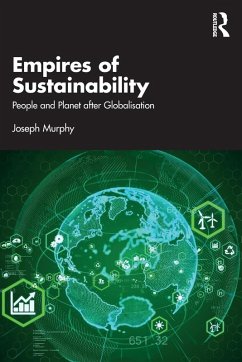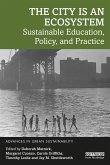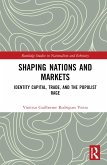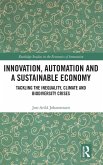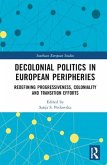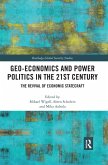Focussing on the greening of imperialisms and empires, Empires of Sustainability analyses the shift around the world from denial of the environmental crisis to action to prevent catastrophe, and the resulting implications.
Evidence of this shift is clear in widespread and purposeful social change which is gathering momentum. The book explains how globalisation accelerated us towards the crisis, and today, even as its own legitimacy is being questioned, is evolving through solutions and responses to it. Looking ahead and as the environmental crisis worsens, two possible futures are discerned and explored. One is that through universal actions to save the planet, shaped by interweaving political and economic forces, the hegemony of globalisation is restored, albeit in a green form. The other is that the world reorganises into competing spheres of influence, with politics, economics and the environment interwoven differently in each case. In these ways, we face the prospect of one or more Empires of Sustainability emerging over the decades ahead, unless we build a better alternative society. The author presents an alternative: a more diverse World of Caring Places.
This accessible book will appeal to students and scholars of international political economy, sustainability and environmental studies, and analysts, policy makers, campaigners and others concerned about the future of relations between people and planet.
Evidence of this shift is clear in widespread and purposeful social change which is gathering momentum. The book explains how globalisation accelerated us towards the crisis, and today, even as its own legitimacy is being questioned, is evolving through solutions and responses to it. Looking ahead and as the environmental crisis worsens, two possible futures are discerned and explored. One is that through universal actions to save the planet, shaped by interweaving political and economic forces, the hegemony of globalisation is restored, albeit in a green form. The other is that the world reorganises into competing spheres of influence, with politics, economics and the environment interwoven differently in each case. In these ways, we face the prospect of one or more Empires of Sustainability emerging over the decades ahead, unless we build a better alternative society. The author presents an alternative: a more diverse World of Caring Places.
This accessible book will appeal to students and scholars of international political economy, sustainability and environmental studies, and analysts, policy makers, campaigners and others concerned about the future of relations between people and planet.

